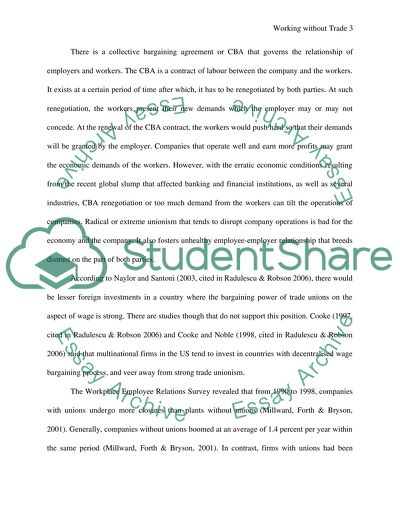Cite this document
(“Working without Trade Unions Essay Example | Topics and Well Written Essays - 1500 words”, n.d.)
Retrieved from https://studentshare.org/environmental-studies/1417347-working-without-trade-unions
Retrieved from https://studentshare.org/environmental-studies/1417347-working-without-trade-unions
(Working Without Trade Unions Essay Example | Topics and Well Written Essays - 1500 Words)
https://studentshare.org/environmental-studies/1417347-working-without-trade-unions.
https://studentshare.org/environmental-studies/1417347-working-without-trade-unions.
“Working Without Trade Unions Essay Example | Topics and Well Written Essays - 1500 Words”, n.d. https://studentshare.org/environmental-studies/1417347-working-without-trade-unions.


